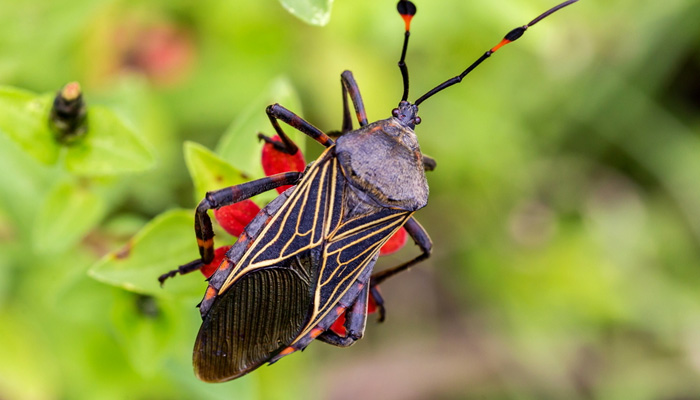Shutterstock
An insect that goes by common terms such as “kissing bug” or “assassin bug,” carrying a potentially deadly parasite is infesting more of the US, and has now been spotted in northern states, prompting the Centers for Disease Control and Prevention (CDC) to issue a warning.

The bug commonly bites people around their mouths, which is where it gained the nickname “kissing bug.” The insect can infect both humans and animals with the potentially fatal Chagas disease.
The insect and the disease Chagas are most prevalent in South America. But in recent years, the insect has been moving northward. The deadly bug is found in the entire southern region of the US, but now has been spotted as far north as Delaware, Pennsylvania, Maryland, North and South Carolina.
Technically, the insect is known as triatoma sanguisuga. The insect feeds on blood of both human and animals, and in so doing, it defecates and leaves behind a parasite that can lead to Chagas disease, which is potentially deadly.
About 300,000 people per year in the United States are affected with the Chagas disease, although most acquire the infections outside of the US.
Animals, especially dogs, sometimes eat the bugs and can be infected with Chagas disease. Technically, dogs can then pass the infection on to humans, although there have been no recorded transmissions in the US.
Kissing bugs tend to live around rocks, wood, bird nests, trash and other debris, so you should clear these items from around your home.
If you spot kissing bugs, experts recommend not squashing them, as this can release the parasite. The best step is to call pest control. However, if you do have a kissing bug in your home, it is recommended to catch it in a container and then kill it by pouring rubbing alcohol over it to drown the insect.
It is also recommended that pets be kept indoors at night.
Typical symptoms for humans include severe redness and itching. The disease can also cause irregular heartbeat, digestive problems, increased risk of stroke and sudden death.
Chagas disease symptoms in dogs is similar to those in humans, including fever, anorexia, lethargy, swollen lymph nodes, enlarged liver or enlarged spleen. The disease can cause heart arrhythmia and heart failure in dogs.